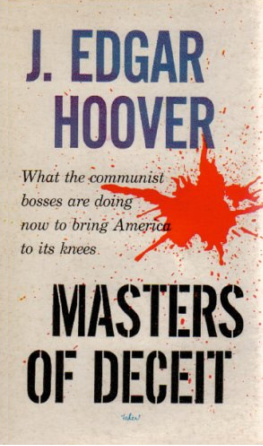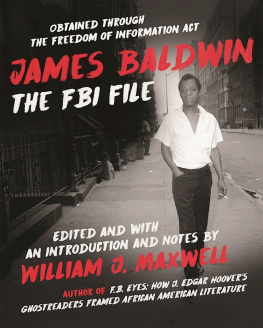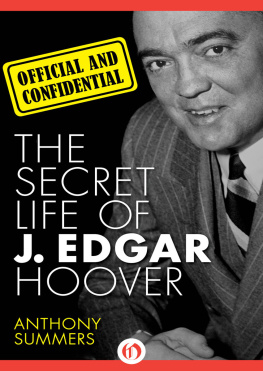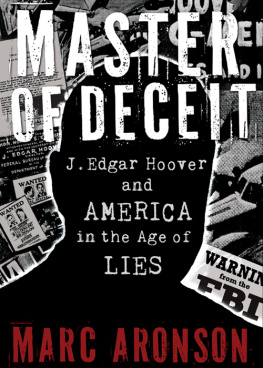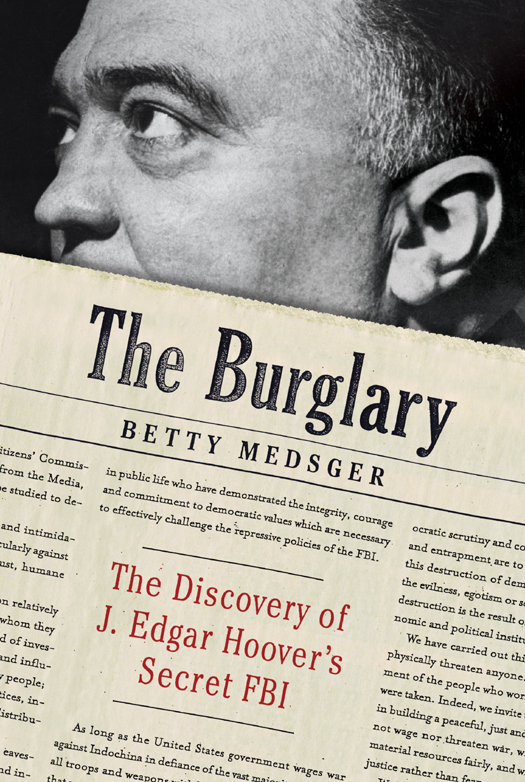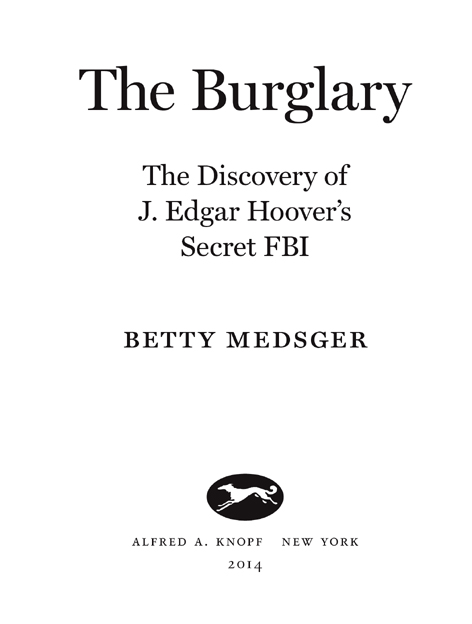Betty Medsger - The Burglary: The Discovery of J. Edgar Hoovers Secret FBI
Here you can read online Betty Medsger - The Burglary: The Discovery of J. Edgar Hoovers Secret FBI full text of the book (entire story) in english for free. Download pdf and epub, get meaning, cover and reviews about this ebook. year: 2014, publisher: Knopf, genre: Politics. Description of the work, (preface) as well as reviews are available. Best literature library LitArk.com created for fans of good reading and offers a wide selection of genres:
Romance novel
Science fiction
Adventure
Detective
Science
History
Home and family
Prose
Art
Politics
Computer
Non-fiction
Religion
Business
Children
Humor
Choose a favorite category and find really read worthwhile books. Enjoy immersion in the world of imagination, feel the emotions of the characters or learn something new for yourself, make an fascinating discovery.

- Book:The Burglary: The Discovery of J. Edgar Hoovers Secret FBI
- Author:
- Publisher:Knopf
- Genre:
- Year:2014
- Rating:4 / 5
- Favourites:Add to favourites
- Your mark:
The Burglary: The Discovery of J. Edgar Hoovers Secret FBI: summary, description and annotation
We offer to read an annotation, description, summary or preface (depends on what the author of the book "The Burglary: The Discovery of J. Edgar Hoovers Secret FBI" wrote himself). If you haven't found the necessary information about the book — write in the comments, we will try to find it.
It begins in 1971 in an America being split apart by the Vietnam War . . . A small group of activistseight men and womenthe Citizens Commission to Investigate the FBI, inspired by Daniel Berrigans rebellious Catholic peace movement, set out to use a more active, but nonviolent, method of civil disobedience to provide hard evidence once and for all that the government was operating outside the laws of the land.
The would-be burglarsnonproswere ordinary people leading lives of purpose: a professor of religion and former freedom rider; a day-care director; a physicist; a cab driver; an antiwar activist, a lock picker; a graduate student haunted by members of her family lost to the Holocaust and the passivity of German civilians under Nazi rule.
Betty Medsgers extraordinary book re-creates in resonant detail how this group of unknowing thieves, in their meticulous planning of the burglary, scouted out the low-security FBI building in a small town just west of Philadelphia, taking into consideration every possible factor, and how they planned the break-in for the night of the long-anticipated boxing match between Joe Frazier (war supporter and friend to President Nixon) and Muhammad Ali (convicted for refusing to serve in the military), knowing that all would be fixated on their televisions and radios.
Medsger writes that the burglars removed all of the FBI files and, with the utmost deliberation, released them to various journalists and members of Congress, soon upending the publics perception of the inviolate head of the Bureau and paving the way for the first overhaul of the FBI since Hoover became its director in 1924. And we see how the release of the FBI files to the press set the stage for the sensational release three months later, by Daniel Ellsberg, of the top-secret, seven-thousand-page Pentagon study on U.S. decision-making regarding the Vietnam War, which became known as the Pentagon Papers.
At the heart of the heistand the bookthe contents of the FBI files revealing J. Edgar Hoovers secret counterintelligence program COINTELPRO, set up in 1956 to investigate and disrupt dissident political groups in the United States in order to enhance the paranoia endemic in these circles, to make clear to all Americans that an FBI agent was behind every mailbox, a plan that would discredit, destabilize, and demoralize groups, many of them legal civil rights organizations and antiwar groups that Hoover found offensiveas well as black power groups, student activists, antidraft protestors, conscientious objectors.
The author, the first reporter to receive the FBI files, began to cover this story during the three years she worked for The Washington Post and continued her investigation long after shed left the paper, figuring out who the burglars were, and convincing them, after decades of silence, to come forward and tell their extraordinary story.
The Burglary is an important and riveting book, a portrait of the potential power of nonviolent resistance and the destructive power of excessive government secrecy and spying.
Betty Medsger: author's other books
Who wrote The Burglary: The Discovery of J. Edgar Hoovers Secret FBI? Find out the surname, the name of the author of the book and a list of all author's works by series.

